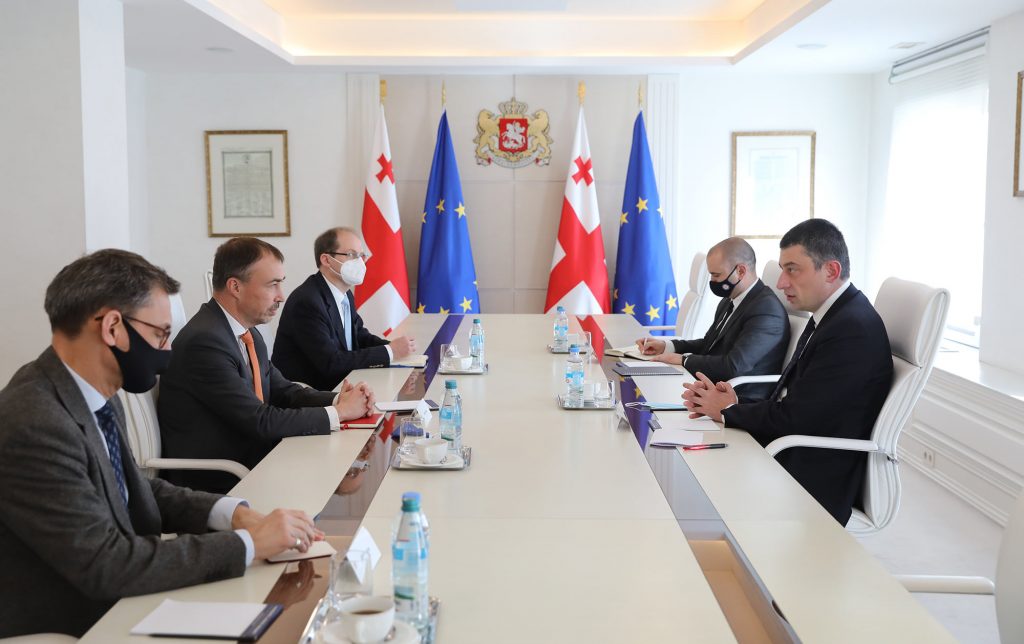Toivo Klaar, the European Union Special Representative for the South Caucasus and the crisis in Georgia, who is visiting Tbilisi since January 24, met Georgian officials.
On January 25, at the meeting with Georgian Prime Minister Giorgi Gakharia, the parties discussed “the latest regional security shifts,” security situation in Georgia’s Kremlin-backed regions and adjacent Tbilisi-controlled territories, as well as humanitarian and socio-economic challenges in the conflict-affected areas, the Georgian Government’s press office reported.
The parties also spoke of movement restrictions imposed by Moscow-backed Sokhumi and Tskhinvali authorities, as well as the recent verdict by the European Court of Human Rights (ECHR) on the 2008 Russo-Georgia war case, in which the Strasbourg-based court held Russia responsible for the breach of six articles of the European Convention of Human Rights in the aftermath of the war.
According to Prime Minister Gakharia, addressing occupation-related issues requires the “crucial” involvement of the EU and other strategic partners in the process. He then thanked the EUSR for the EU’s engagement in conflict resolution and dividing line monitoring efforts by the EU Monitoring Mission.
On the same day, Toivo Klaar held another meeting with the Georgian Parliament’s Foreign Relations Committee Chair Nikoloz Samkharadze. Klaar discussed with Samkharadze the developments in the South Caucasus region, protracted conflicts, and the security situation of the region.
On January 26, at the meeting with President Salome Zurabishvili, the parties discussed the President’s three-day working visit to Brussels, where Zurabishvili met EU and NATO officials. The parties also addressed severe human rights situation in the occupied regions of the country, as well as the EU’s solidarity and support to Georgia in obtaining the COVID-19 vaccine in a timely manner.
President Zurabishvili underlined the importance of EU involvement in the political processes of the Caucasus generally, while particularly commending the extension of the EU Monitoring Mission mandate in the territories adjacent to the occupation line.
On the same day, Toivo Klaar met Georgian Deputy Foreign Minister Lasha Darsalia. According to the Foreign Ministry, the sides overviewed the difficult security and humanitarian situation in Georgia’s occupied territories “reaffirming the need to achieve the progress in the Geneva International Discussions.”
Darsalia informed Klaar about recent Russian “provocations,” including illegal detention of Georgian citizens, borderization process, free movement restrictions, ethnic discrimination, and ban on medical evacuations. Deputy Foreign Minister also underlined the necessity to deliver justice on the murder cases of Georgian citizens: Davit Basharuli, Giga Otkhozoria, and Archil Tatunashvili.
This post is also available in: ქართული (Georgian) Русский (Russian)

